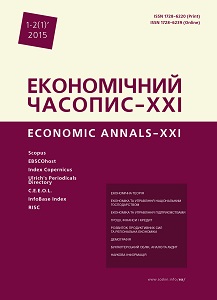ANALYSIS OF FISCAL AND MONETARY POLICIES COORDINATION IN MONTENEGRO
ANALYSIS OF FISCAL AND MONETARY POLICIES COORDINATION IN MONTENEGRO
Author(s): Damir SehovicSubject(s): Economy
Published by: Institute of Society Transformation
Keywords: Monetary Policy; Fiscal Policy; Coordination; Euroisation; Public Debt; Formal Arrangements; Informal Arrangements
Summary/Abstract: To achieve the goals of economic policy, it is necessary to attain a high level of harmonization between monetary and fiscal policies and to establish adequate coordination between them, using both formal and informal arrangements. Countries with a stricter institutional division between the objectives and instruments for monetary and fiscal policies conducting and with a developed financial market attain coordination between them mostly through the actions of market mechanisms. Formal arrangements are taking place and more expedient in the countries which do not have the necessary financial market depth, or the tradition of its proper functioning. In Montenegro, which has chosen the regime of euroisation, coordination of monetary and fiscal policies is more important than in the countries which have their own currency. Due to the lack of the market mechanisms action traditions, and the numerous imperfections and limitations of the financial market, the establishment of a formal arrangement would enhance the coordination between the monetary and fiscal policies. Montenegro formally meets the greatest part of the recommendations in terms of institutional and operational arrangements necessary for coordination. Irrespective of that, the coordination of fiscal and monetary policy in Montenegro needs to be further improved.
Journal: Економічний часопис - ХХІ
- Issue Year: 147/2015
- Issue No: 01+02 (1)
- Page Range: 66-69
- Page Count: 4
- Language: English

